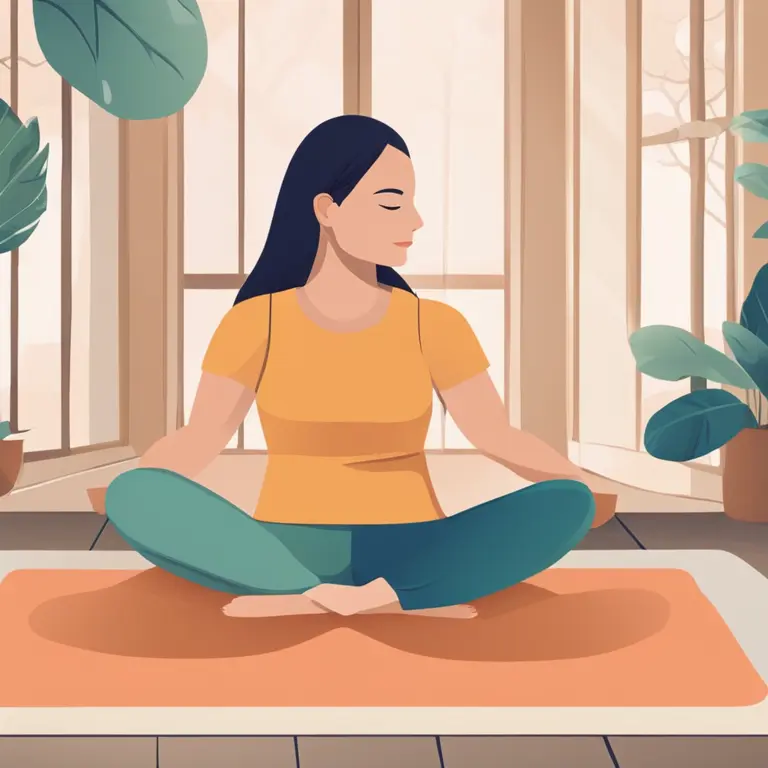
Calming the Mind: Meditation Techniques to Alleviate Stress
Learn essential meditation practices designed to reduce stress, improve well-being, and promote mental health in our fast-moving world.
article by Hina Kurosawa
Meditation: A Modern Antidote for Stress
Meditation has ancient roots, but its relevance has only soared in our modern age of constant connectivity and stress. As science continues to unveil the benefits of meditation, more people are turning towards this timeless practice to find peace. Let's explore some effective meditation techniques that offer a respite from the daily grind. By integrating these practices, you can cultivate a serene mind, bolster resilience to stress, and embrace a calmer outlook on life.

Starting Simple: Breath Focus
Breath-focused meditation is an excellent starting point for beginners. This technique involves quieting the mind by concentrating solely on your breath. Sit or lie down in a comfortable position. Close your eyes, breathe naturally, and pay attention to how your breath moves in and out of your body. If your mind wanders, gently bring your focus back to your breathing. Over time, this practice can help reduce anxiety levels and promote relaxation.

Progressive Muscle Relaxation
Another gentle way to relieve tension is through Progressive Muscle Relaxation (PMR). In this practice, you tense a group of muscles as you breathe in, and relax them as you breathe out. Work through the body systematically, starting from the toes and moving up to the forehead. Besides easing stress, PMR can improve sleep and lower symptoms of chronic pain.

Guided Visualization
Guided visualization or guided imagery can transport you to a place of peace amidst turmoil. Via a guide or through your own imagination, picture a serene setting and immerse all your senses. For instance, envision yourself on a tranquil beach, hearing the waves, smelling the ocean, and feeling the warmth of the sun. This technique aids in reducing stress and can also enhance mood.

Mindfulness Meditation
Mindfulness meditation encourages you to observe wandering thoughts as they drift through your mind. The intent isn't to get involved with the thoughts or to judge them, but simply to be aware of each mental note as it arises. Through mindfulness, you can see how your thoughts and feelings tend to move in particular patterns. Over time, this practice can help bring a sense of calmness and clarity.
Moving Meditations: Yoga and Tai Chi
These ancient practices combine physical movement with breath control and meditation. In yoga, you perform various poses that require balance and concentration, thus fostering a form of moving meditation. Tai Chi, on the other hand, involves gentle flowing movements that can help soothe the mind. Both can be powerful tools for managing stress and anxiety.
Zazen: Seated Meditation
Zazen is a form of seated meditation that's at the heart of Zen Buddhism. Practitioners sit in the lotus or half-lotus position, focus on their breathing, and observe the thoughts and sensations that arise without attachment. Zazen is known for its ability to create a deep state of tranquility and a profound sense of presence.
Heart Rhythm Meditation (HRM)
Heart Rhythm Meditation focuses on creating a deep connection between the breath and the heart rhythm. This practice involves breathing in a pattern that synchronizes the heartbeat, which can lead to greater harmony within the body and a reduction in stress levels. HRM is a modern adaptation that emphasizes emotional balance and improved physiological functioning.
Published: 2/12/2024
Modified: 2/12/2024
More predictions
Come back here soon to learn more about yourself and your future


The Serenity of Meditation Music: An Ethereal Journey
Discover how meditation music can enhance your spiritual practices, support stress relief, and align with astrological energies for a harmonious life.


The Heart of Meditation: A Journey Inward
Discover the heart of meditation, its benefits, and how to integrate this ancient practice into modern life for peace and self-discovery.


Breathing Practices for Deeper Meditation
Delve into effective breathing methods that enhance meditation practices, fostering tranquility and inner peace.